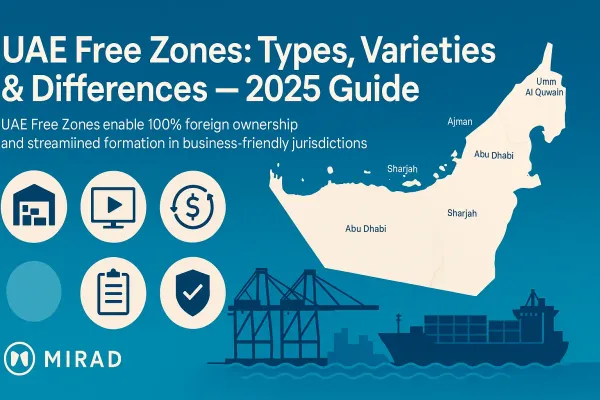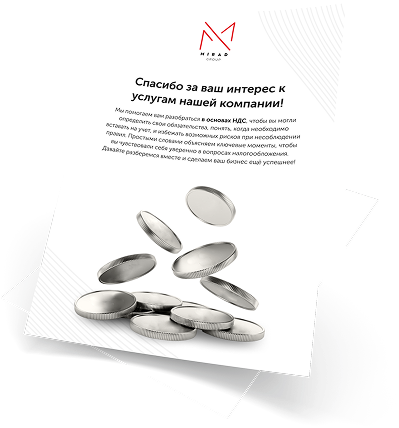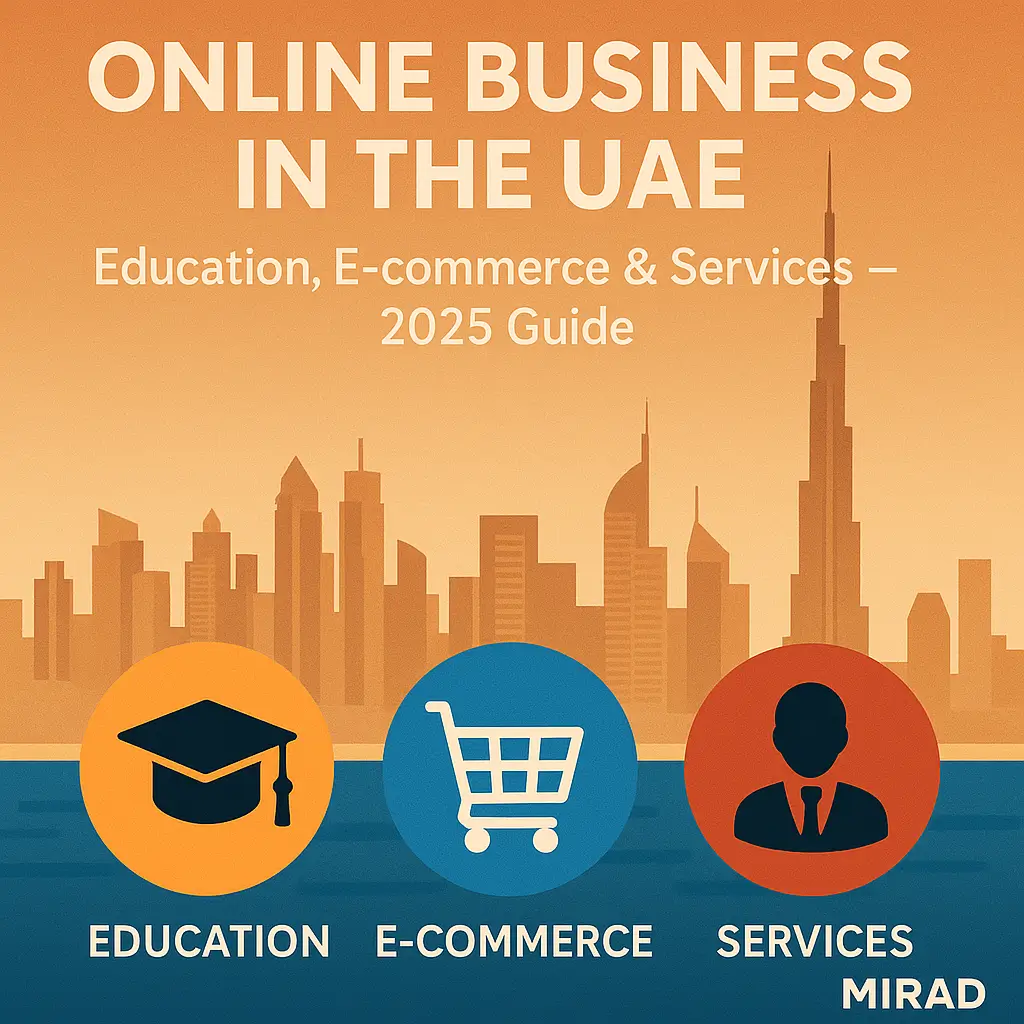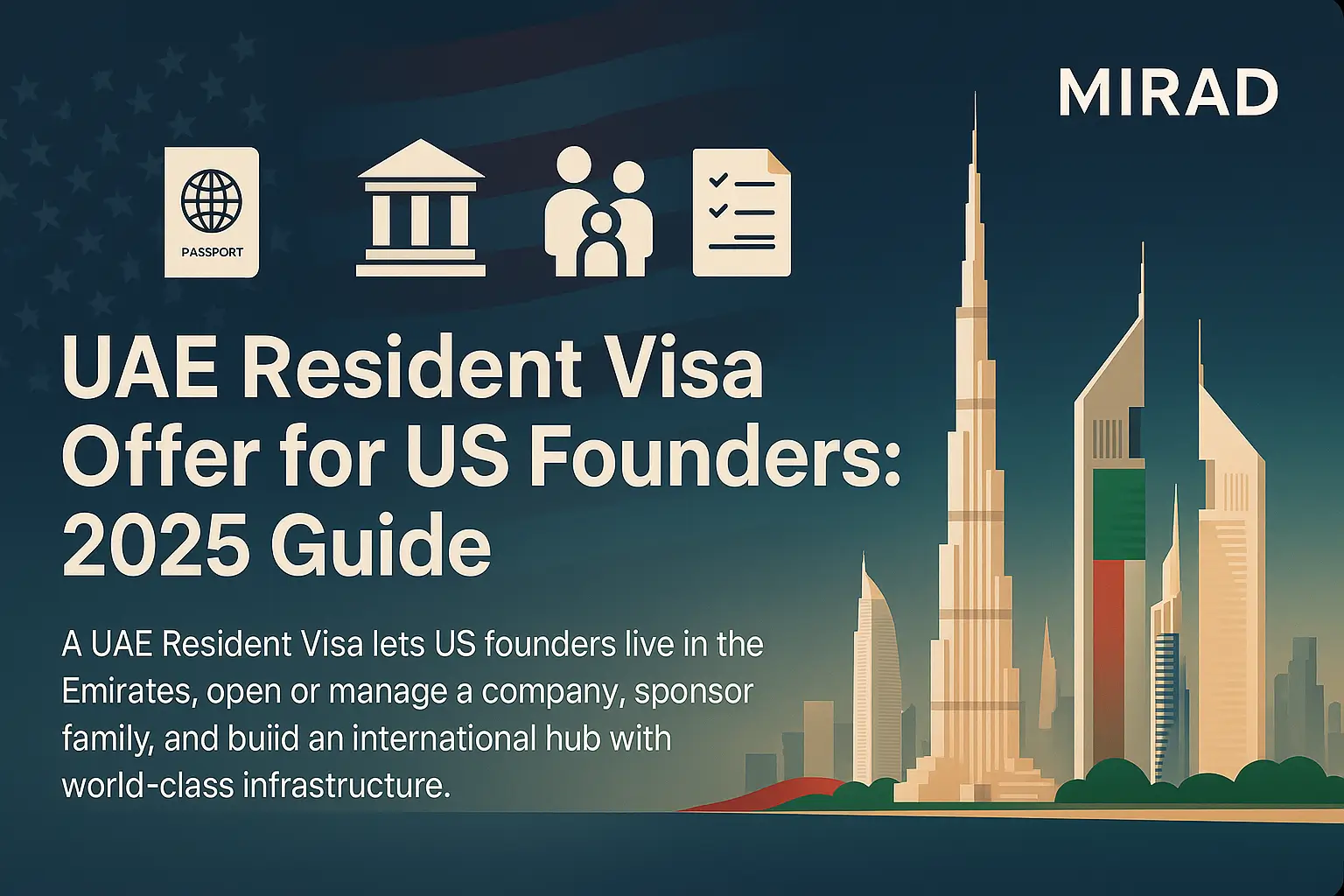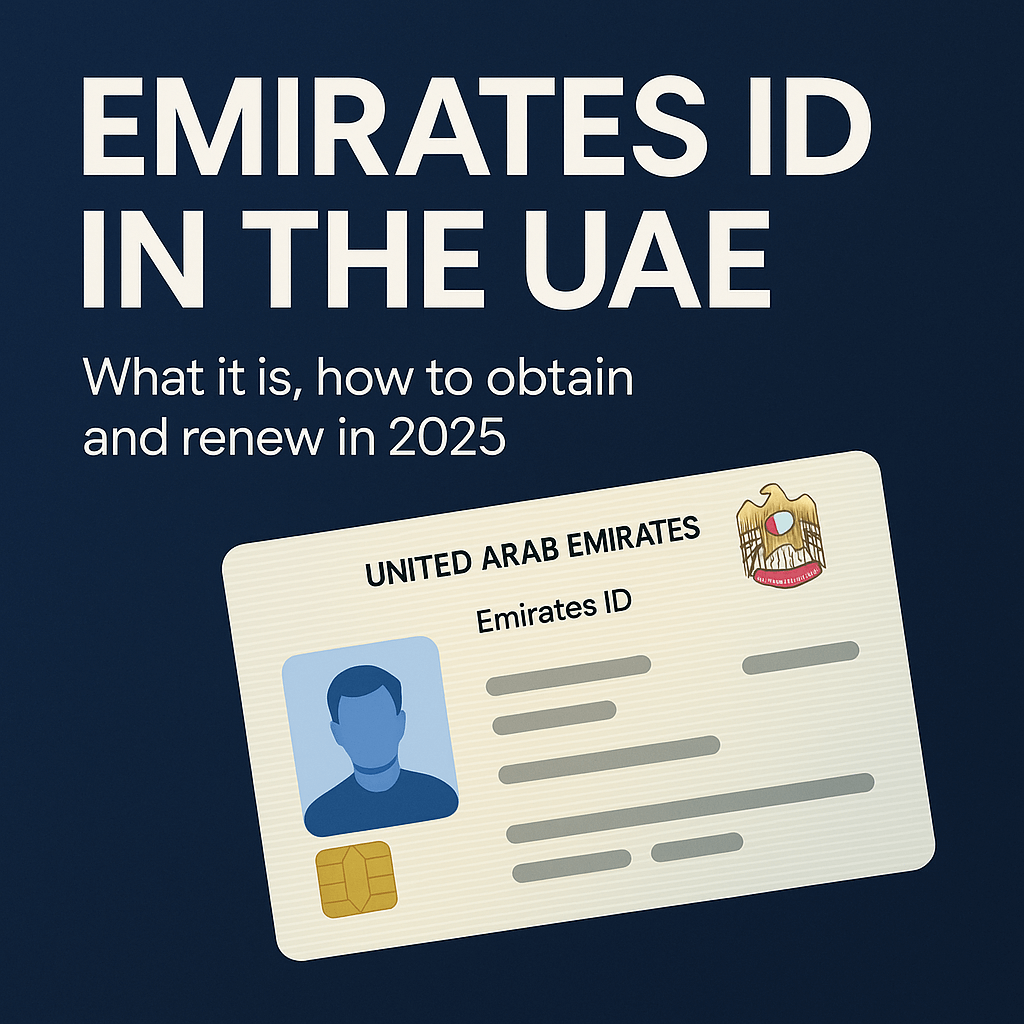Search
- Home
- Blogs
-
Services
-
What you need to know before registering a company in the UAE
-
What is Mainland? Key Concepts
-
Hiring Staff/Main Rules and Responsibilities
-
Free Zones: Types/Varieties/Differences
-
Taxes in the UAE
-
Dispute Resolution in the UAE
-
Resident Visas in the UAE
-
Import and Export in the UAE
-
How to Choose an Office/Warehouse/Retail Showroom/Formal Office
-
UAE Banks/Compliance: What is it?
-
Where to start?
-
How to Choose a Consultant
-
Accounting and Reporting
-
-
Company Registration
-
Banking Solutions in the UAE & Oman
-
VIP Investor Account
-
Personal Bank Account for Employees · Up to 100K AED/Year
-
Loan for Legal Entities
-
Personal Bank Account for Founders
-
Bank Account for Individuals Without a Residence Visa
-
Corporate Bank Account for Large Businesses · Turnover Over 10M AED/Year
-
Mortgage for Individuals
-
Bank Account for Foreign Companies in the UAE
-
Corporate Bank Account for Medium-Sized Businesses · Turnover 5-10M AED/Year
-
Corporate Bank Account for Small Businesses · Up to 5M AED/Year
-
Corporate Bank Account in Oman
-
Investment Proposals from Financial Companies in the UAE
-
Personal Bank Account in Oman
-
-
Corporate Compliance & Reporting
-
Annual Corporate Maintenance Services in the UAE
-
Legal & Corporate Support Services
-
Business Acquisition & Ready-Made Companies in the UAE
-
Corporate Legal Services in the UAE
-
Business Partnerships & Joint Ventures in the UAE
-
Types of companies in the UAE. Types of activities
-
Beauty Salon
-
Logistics/Transportation Companies
-
Tourism and Tour Operators
-
Retail Store/Showroom, Retail Trade
-
Clinics and Hospitals
-
General Trade Trading Company
-
Manufacturing Company in the UAE
-
Other
-
Online Business: Education, E-commerce & Services
-
Service Company
-
Restaurant/Cafe
-
Developer Company/Developer
-
Investment Company (Securities/Cryptocurrency)
-
-
UAE Visas
-
Founder/Partner Visa
-
10-Year Influencer Visa
-
5-Year Golden Visa
-
Domestic Staff Visa
-
10-Year Outstanding Cultural Figure Visa in the UAE
-
Employee Visa
-
10-Year Doctor/Medical Worker Visa
-
Visas to Other Countries: Schengen/UK, USA, Japan/China/Saudi Arabia and Others
-
Family Visa: Spouses/Children/Parents
-
10-Year Golden Visa
-
Tourist Visa
-
10-Year Executive Visa
-
Property Owner 2 Years
-
Remote Worker Visa
-
-
Government Bodies. What Issues They Address
-
Ministry of Economy
-
Municipality
-
MOFA
-
Ministry of Happiness
-
Ministry of Health
-
Immigration Service UAE: GDRFA / ICP
-
Land Department
-
Police
-
Ministry of Culture
-
Ministry of Justice
-
General Structure of Government System
-
Tax Service
-
Offices of His Highness
-
Ministry of Finance
-
Ministry of Human Resources and Emiratisation (MOHRE)
-
Ministry of Energy and Infrastructure
-
-
Types of Legal Entities
-
Licensing
-
- Portfolio
- Glossary
- Contacts
- About
-
What you need to know before registering a company in the UAE
-
What is Mainland? Key Concepts
-
Hiring Staff/Main Rules and Responsibilities
-
Free Zones: Types/Varieties/Differences
-
Taxes in the UAE
-
Dispute Resolution in the UAE
-
Resident Visas in the UAE
-
Import and Export in the UAE
-
How to Choose an Office/Warehouse/Retail Showroom/Formal Office
-
UAE Banks/Compliance: What is it?
-
Where to start?
-
How to Choose a Consultant
-
Accounting and Reporting
-
-
Company Registration
-
Banking Solutions in the UAE & Oman
-
VIP Investor Account
-
Personal Bank Account for Employees · Up to 100K AED/Year
-
Loan for Legal Entities
-
Personal Bank Account for Founders
-
Bank Account for Individuals Without a Residence Visa
-
Corporate Bank Account for Large Businesses · Turnover Over 10M AED/Year
-
Mortgage for Individuals
-
Bank Account for Foreign Companies in the UAE
-
Corporate Bank Account for Medium-Sized Businesses · Turnover 5-10M AED/Year
-
Corporate Bank Account for Small Businesses · Up to 5M AED/Year
-
Corporate Bank Account in Oman
-
Investment Proposals from Financial Companies in the UAE
-
Personal Bank Account in Oman
-
-
Corporate Compliance & Reporting
-
Annual Corporate Maintenance Services in the UAE
-
Legal & Corporate Support Services
-
Business Acquisition & Ready-Made Companies in the UAE
-
Corporate Legal Services in the UAE
-
Business Partnerships & Joint Ventures in the UAE
-
Types of companies in the UAE. Types of activities
-
Beauty Salon
-
Logistics/Transportation Companies
-
Tourism and Tour Operators
-
Retail Store/Showroom, Retail Trade
-
Clinics and Hospitals
-
General Trade Trading Company
-
Manufacturing Company in the UAE
-
Other
-
Online Business: Education, E-commerce & Services
-
Service Company
-
Restaurant/Cafe
-
Developer Company/Developer
-
Investment Company (Securities/Cryptocurrency)
-
-
UAE Visas
-
Founder/Partner Visa
-
10-Year Influencer Visa
-
5-Year Golden Visa
-
Domestic Staff Visa
-
10-Year Outstanding Cultural Figure Visa in the UAE
-
Employee Visa
-
10-Year Doctor/Medical Worker Visa
-
Visas to Other Countries: Schengen/UK, USA, Japan/China/Saudi Arabia and Others
-
Family Visa: Spouses/Children/Parents
-
10-Year Golden Visa
-
Tourist Visa
-
10-Year Executive Visa
-
Property Owner 2 Years
-
Remote Worker Visa
-
-
Government Bodies. What Issues They Address
-
Ministry of Economy
-
Municipality
-
MOFA
-
Ministry of Happiness
-
Ministry of Health
-
Immigration Service UAE: GDRFA / ICP
-
Land Department
-
Police
-
Ministry of Culture
-
Ministry of Justice
-
General Structure of Government System
-
Tax Service
-
Offices of His Highness
-
Ministry of Finance
-
Ministry of Human Resources and Emiratisation (MOHRE)
-
Ministry of Energy and Infrastructure
-
-
Types of Legal Entities
-
Licensing

